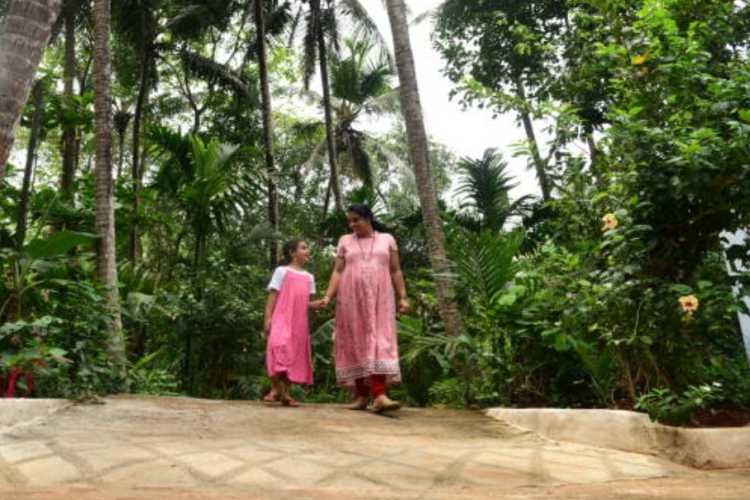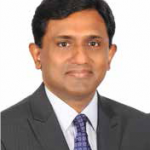
Kerala’s midwifery policy reversal: The Kerala government’s decision to discontinue the role of midwives in public health services marks a troubling reversal in a state otherwise celebrated for its health outcomes. This policy shift undermines the foundation of Kerala’s maternal health system, particularly in maternity care — a domain where the state has long been a model for India. According to the World Health Organisation (WHO), midwifery represents “skilled, knowledgeable and compassionate care for child-bearing women, new-born infants and families across the continuum from pre-pregnancy, pregnancy, birth, postpartum and the early weeks of life.”
Evidence consistently shows that trained, regulated, and licensed midwives lead to lower maternal and neonatal mortality and ensure respectful, patient-centred care. Yet, the Kerala government’s neoliberal health policy has ignored this global consensus, withdrawing midwives’ support at a time when equitable, community-based care is needed more than ever.
READ | India eyes UPI global expansion to complete fintech revolution
A strong system with deep fault lines
Kerala’s maternal-health record remains impressive, with almost every childbirth occurring in an institution and attended by skilled professionals. But this apparent success hides persistent structural weaknesses. Deep inequities among marginalised groups, over-medicalisation, fragmented care pathways, workforce shortages, and a lack of disaggregated data continue to weaken the system’s inclusivity and sustainability.
The disengagement of midwives compounds these issues. Their absence disconnects the last mile of maternal care — especially for women in coastal, tribal, and economically weaker communities — from the rest of the health system. The result is not just a service gap, but a loss of trust and continuity that no policy dashboard can capture.
Midwifery policy reversal: Erosion of trust
For Dalit, Adivasi, and coastal women, institutional care has long carried an undertone of social distance. Midwives often acted as trusted interlocutors — blending professional skill with cultural sensitivity. Without them, community engagement falters. Migrant workers and the urban poor, who already struggle with documentation barriers, face further exclusion from antenatal and postnatal services.
By sidelining midwives, the government has weakened one of the few human links between vulnerable women and formal healthcare. This isn’t merely an operational setback; it deepens systemic inequity. A policy that appears technocratic on paper ends up being exclusionary in practice.
When medical progress turns into over-medicalisation
The steady rise of caesarean sections in Kerala’s private hospitals is a symptom of an over-medicalised maternity culture. While institutional deliveries have become near-universal, respect for patients’ choices has not. Reports of verbal abuse, neglect, and denial of informed consent suggest that care has become more procedural than personal.
Midwives typically act as a counterbalance to this institutional bias. They advocate for natural birthing processes and intervene only when medically necessary. Their withdrawal from the system has tilted the balance towards high-cost, high-risk medicalisation. This not only burdens families financially but also undermines women’s autonomy in childbirth.
Gaps in care and the growing burden of NCDs
Postnatal care — especially mental health, nutrition, and breastfeeding support — remains under-prioritised across facilities. The absence of midwives has widened this gap. Referral systems between Primary Health Centres (PHCs) and tertiary hospitals are fragmented, delaying critical emergency interventions.
At the same time, non-communicable diseases (NCDs) such as gestational diabetes, hypertension, and anaemia are on the rise among pregnant women. Midwives could have been at the frontline of prevention and early management. But their exclusion has left these conditions largely unmonitored at the community level. Even Kerala’s maternal-death audits — which could have guided targeted interventions — remain inconsistently implemented, depriving policymakers of vital insights.
Overburdened workforce and declining care quality
Maternity-care staff in government hospitals are stretched thin. Overburdened nurses and doctors face burnout, leading to compromised quality of care. In rural regions, the shortage of trained midwives means fewer touchpoints for expectant mothers. A robust midwifery cadre could have alleviated these pressures through task-sharing, freeing obstetricians for complex cases while ensuring continuity of care at the grassroots level.
Midwives are not auxiliary staff. They are professionals with a deep understanding of maternal physiology, community dynamics, and emotional health. Treating them as dispensable weakens not only the care system but also the human dignity that should define Kerala’s public health ethos.
Building a midwifery cadre: From policy rhetoric to implementation
Kerala’s advantage lies in its strong public-health infrastructure, high literacy, and commitment to decentralised governance. These are precisely the ingredients required to build a modern, professional midwifery cadre. The state should formally recognise midwifery as an essential component of maternal healthcare through a clear government directive and institutional framework under the Kerala Nurses and Midwives Council (KNMC).
Reforming education is a crucial first step. Auxiliary Nursing and Midwifery (ANM) and General Nursing and Midwifery (GNM) programmes must be expanded to include midwifery specialisations, with competency-based curricula aligned to Indian Nursing Council standards. Bridge courses can help existing nurses and community-health workers transition into midwifery roles. Partnerships with international midwifery institutions can modernise training in respectful maternity care, emergency obstetrics, and community engagement.
Deployment strategy should also be decentralised. Midwives should be posted at PHCs, Family Health Centres, and outreach clinics, with priority given to underserved coastal, tribal, and hill regions. Their integration into the Aardram Mission and the Kerala Development and Innovation Strategic Council (K-DISC) would ensure alignment with ongoing state health reforms. Embedding midwives within these missions would promote women’s leadership, community trust, and respectful care practices.
Finally, governance must evolve to match ambition. The state can establish a Midwifery Task Force within the Health Department to oversee recruitment, training, and performance evaluation. Regular maternal-death reviews, disaggregated panchayat-level data collection, and community scorecards will enhance accountability. Integrating midwifery metrics into health-information systems and SDG dashboards can make outcomes visible, measurable, and policy-responsive.
Anchoring midwifery in Kerala’s decentralised health governance
A revitalised midwifery programme should become the cornerstone of Kerala’s Community Health System Strengthening (CHSS) framework. Such a framework would rely on participatory governance — involving women’s self-help groups, ASHA networks, and local-body health committees — to monitor service delivery and uphold patient rights.
Midwives, positioned as maternal-health advocates within these structures, can facilitate community dialogues on birth preparedness, respectful care, and home-based counselling. They can also promote health literacy by co-creating communication materials, using digital tools for antenatal education, and supporting informed decision-making on delivery choices.
In parallel, Kerala should position itself as a regional hub for midwifery excellence — hosting training centres, research collaborations, and policy dialogues that showcase its model to other Indian states and to countries across the Global South. Documenting Kerala’s experience through open-access repositories and academic partnerships would turn the state’s health sector into a platform for international learning.
Kerala’s decision to phase out midwives runs counter to its long tradition of community-centred public health. Reinstating and institutionalising a midwifery cadre is not just a professional demand — it is a policy imperative for maternal health, gender equity, and social trust. A forward-looking Kerala can, once again, lead the way by demonstrating that health reforms rooted in compassion, competence, and community connection deliver the most sustainable outcomes.
Dr Joe Thomas is Global Public Health Chair at Sustainable Policy Solutions Foundation, a policy think tank based in New Delhi. He is also Professor of Public Health at Institute of Health and Management, Victoria, Australia. Opinions expressed in this article are personal.

